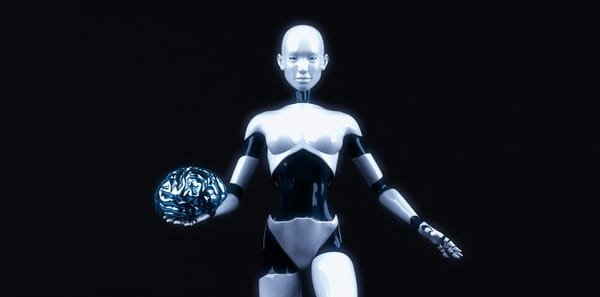AI in Recruitment: Beyond Automation
The environment of recruitment, which has always been linked to interpersonal relationships, is changing dramatically. Though it may seem counterintuitive, technology and talent acquisition are becoming more and more compatible. In particular, artificial intelligence (AI) has brought technologies that are pushing the limits of recruitment well beyond automation.
Exploring the Role of AI in Recruitment
Nowadays, recruiting involves more than merely matching resumes to jobs. AI is elevating the process to a higher level of sophistication, increasing its predictability, efficiency, and intuitiveness. Artificial intelligence (AI) essentially mimics human intellect functions like learning, reasoning, and self-correction.
Artificial intelligence (AI) can evaluate enormous volumes of data in real time for recruiting. It may go through a ton of resumes and identify the ones that most closely match the job's requirements. However, it goes beyond that. AI-powered technologies can estimate a candidate's stay at a company, assess cultural fit, and even project their potential.
Furthermore, AI supports objective hiring. These technologies can guarantee a more inclusive and diverse hiring process by doing away with human biases.
Tools and Platforms Leveraging AI for Recruitment
Many cutting-edge solutions are available on the market today that use AI to transform the recruitment process.
· Chatbots for Candidate Engagement: AI-driven chatbots are being used by platforms such as Robolink and Xor. These chatbots engage prospective employees by responding to their questions, setting up interviews, and giving prompt answers.
· Video Interview Analysis: AI is used by programs like HireVue to analyze video interviews. In addition to evaluating a candidate's words, they also look at their body language, tone of voice, and facial expressions.
· Predictive Analytics Platforms: Programs such as Pymetrics use artificial intelligence (AI) and games based on neuroscience to match job prospects' emotional and cognitive skills to corporate profiles.
· Sourcing Tools: HiringSolved and Entelo, for example, use artificial intelligence (AI) to search the internet for passive applicants who might not be actively seeking a job but are a perfect fit.
Tips for Implementing AI in Your Recruitment Strategy
· Establish Specific Goals: Prior to utilizing AI, clearly define your goals. Are hiring cycles faster? Higher caliber of hires? Diversity objectives?
· Start Small: Don't completely revamp your hiring procedure all at once. Once you're comfortable with one area, such as CV screening, go on to other areas of AI.
· Select the Proper Tools: AI tools are not made equally. Look into and select platforms that meet your unique requirements and work well with the systems you already have.
· Educate Your Group: The advent of AI does not make human interaction unnecessary. Make sure your HR staff is aware of when and how to use these tools in conjunction with human intervention.
· Stay Updated: AI in hiring is a quickly developing field. To stay on top of things, keep an eye on new tools, trends, and best practices.
In summary, artificial intelligence in hiring is revolutionary, but it doesn't take the role of people. Rather, it enhances it. Artificial intelligence (AI) frees up recruiters to concentrate on what they do best—connecting with prospects personally and fostering relationships—by handling monotonous duties and providing data-driven insights. It's about elevating the bar for recruitment outcomes and standards, not merely automating them.




